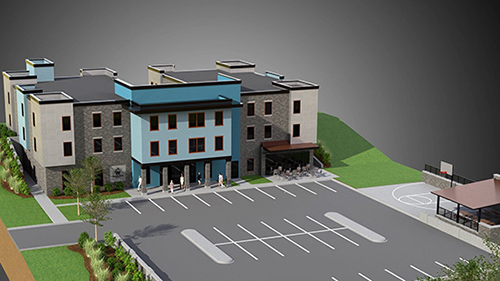Project Impacts:
- Increase the number of men treated annually from 500 to 650
Partners:
NCIF: $6MM NMTC allocation
Central Bank of Kansas: $8MM
Welcome House is a community organization running since 1941 in Kansas City, Missouri. The focus on programming treating alcoholics and drug-addicted men facing difficult transition from other treatment, incarceration, and homelessness, ultimately, facilitating the reintegration of these individuals as productive citizens in society. Welcome House provides recovery and residency programs based on a “whole person” framework, treating the unique needs of everyone. Welcome House’s residency program has aspects coordinated with the local courts (the “Court Ordered Recovery” program) and accepts direct application for residency.
Welcome House last expanded its capacity to 80 beds over 30 years ago, when it moved into its currently 110-year-old building in 1986. Welcome House has experienced a significant increase in demand, as the occupancy rate for the 80-bed facility increased from 88% in 2017 to 95% since 2018. Its current building allows Welcome House to treat an average of 500 men annually. The additional space at their future facility is estimated to increase annual treatment to 650 men, a 30% increase. In 2020 the graduation rate of its Core Recovery Program was almost 40%, well above the national average of between 15% and 25% for similar therapeutic models.
The project census tract has a population of 2,052 residents of which 1,370 (66%) are minorities. Of the minority population, the primary constituents are a) 1,019 (49.6%) are Black, b) 147 (7.2%) are Hispanic, c) 132 (6.4%) are other/two or more races.
Welcome House is situated in Kansas City’s historic Beacon Hill neighborhood. The CT is highly distressed and medically underserved with a poverty rate of 32%. A CDC report that studied overdose (OD) rates in Missouri and Kansas in 2019 reported an increase of 20% in OD rates. Plus, according to a University of Kansas Study, “Towards a More Responsive Substance Use Disorder Continuum of Care: Kansas City Metropolitan Area 2018 Needs Assessment”, the shortage of long-term recovery beds in the greater Kansas City area is acute and demand for services far exceeds current capacity.

